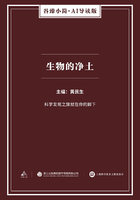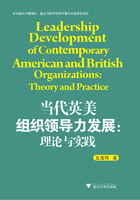The more numerous the magistrates, therefore, the weaker the government.
This principle being fundamental, we must do our best to make it clear.
In the person of the magistrate we can distinguish three essentially different wills: first, the private will of the individual, tending only to his personal advantage; secondly, the common will of the magistrates, which is relative solely to the advantage of the prince, and may be called corporate will, being general in relation to the government, and particular in relation to the State, of which the government forms part; and, in the third place, the will of the people or the sovereign will, which is general both in relation to the State regarded as the whole, and to the government regarded as a part of the whole.
In a perfect act of legislation, the individual or particular will should be at zero; the corporate will belonging to the government should occupy a very subordinate position; and, consequently, the general or sovereign will should always predominate and should be the sole guide of all the rest.
According to the natural order, on the other hand, these different wills become more active in proportion as they are concentrated.Thus, the general will is always the weakest, the corporate will second, and the individual will strongest of all: so that, in the government, each member is first of all himself, then a magistrate, and then a citizen ?in an order exactly the reverse of what the social system requires.
This granted, if the whole government is in the hands of one man, the particular and the corporate will are wholly united, and consequently the latter is at its highest possible degree of intensity.But, as the use to which the force is put depends on the degree reached by the will, and as the absolute force of the government is invariable, it follows that the most active government is that of one man.
Suppose, on the other hand, we unite the government with the legislative authority, and make the Sovereign prince also, and all the citizens so many magistrates: then the corporate will, being confounded with the general will, can possess no greater activity than that will, and must leave the particular will as strong as it can possibly be.Thus, the government, having always the same absolute force, will be at the lowest point of its relative force or activity.
These relations are incontestable, and there are other considerations which still further confirm them.We can see, for instance, that each magistrate is more active in the body to which he belongs than each citizen in that to which he belongs, and that consequently the particular will has much more influence on the acts of the government than on those of the Sovereign;for each magistrate is almost always charged with some governmental function, while each citizen, taken singly, exercises no function of Sovereignty.
Furthermore, the bigger the State grows, the more its real force increases, though not in direct proportion to its growth; but, the State remaining the same, the number of magistrates may increase to any extent, without the government gaining any greater real force; for its force is that of the State, the dimension of which remains equal.Thus the relative force or activity of the government decreases, while its absolute or real force cannot increase.
Moreover, it is a certainty that promptitude in execution diminishes as more people are put in charge of it: where prudence is made too much of, not enough is made of fortune; opportunity is let slip, and deliberation results in the loss of its object.
I have just proved that the government grows remiss in proportion as the number of the magistrates increases; and I previously proved that, the more numerous the people, the greater should be the repressive force.
From this it follows that the relation of the magistrates to the government should vary inversely to the relation of the subjects to the Sovereign;that is to say, the larger the State, the more should the government be tightened, so that the number of the rulers diminish in proportion to the increase of that of the people.
It should be added that I am here speaking of the relative strength of the government, and not of its rectitude: for, on the other hand, the more numerous the magistracy, the nearer the corporate will comes to the general will; while, under a single magistrate, the corporate will is, as I said, merely a particular will.Thus, what may be gained on one side is lost on the other, and the art of the legislator is to know how to fix the point at which the force and the will of the government, which are always in inverse proportion, meet in the relation that is most to the advantage of the State.3.THE DIVISION OF GOVERNMENTS W E saw in the last chapter what causes the various kinds or forms of government to be distinguished according to the number of the members composing them: it remains in this to discover how the division is made.
In the first place, the Sovereign may commit the charge of the government to the whole people or to the majority of the people, so that more citizens are magistrates than are mere private individuals.This form of government is called democracy.
Or it may restrict the government to a small number, so that there are more private citizens than magistrates; and this is named aristocracy.
Lastly, it may concentrate the whole government in the hands of a single magistrate from whom all others hold their power.This third form is the most usual, and is called monarchy , or royal government.
It should be remarked that all these forms, or at least the first two, admit of degree, and even of very wide differences; for democracy may include the whole people, or may be restricted to half.Aristocracy, in its turn, may be restricted indefinitely from half the people down to the smallest possible number.Even royalty is susceptible of a measure of distribution.















